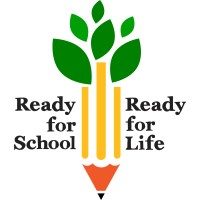NC workforce registry system survey
North Carolina (NC) is one of only nine states that currently does not have an EC/SA workforce registry system. Planning for this registry is very important as it will position the State to bring individual and aggregated real-time data about early childhood and school age practitioners’ education, credentials, work locations and demographics into one place. An EC/SA Workforce Registry is an information system that:
- Captures real time data about early childhood and out of school time (OST) practitioners in a variety of roles and settings.
- Recognizes and honors professional achievements of the early childhood and school age workforce.
- Promotes individual professional growth and development.
- Is based on State career-level systems that provide a framework for professional development.
Having one integrated system where all early childhood workforce data can be housed will decrease the burden and frustration that educators and programs face having to input data in different places/systems. Because NC is often recognized as a leader in early childhood, the lack of a statewide integrated workforce registry is a long-standing need. Once complete, not only will the data prove important to the state, but it will allow NC to participate in the national EC/SA workforce data pull that informs federal policy on young children. Please consider taking this survey and sharing your thoughts with us as well as share this with other early childhood and school age colleagues. The survey will remain open until June 11th at 5:00 p.m. EST.
There are two surveys available to take:
- An Administrator/Educator survey specific to early care and education/school-age program directors, center-based program staff, and family child care-based staff
- A General Stakeholder survey targeting the larger early childhood education and care system and its stakeholders (such as Higher Education, CCR&Rs, Training/Technical Assistance providers, etc.)
Please be sure to set your browser to Google Chrome or Firefox to access these surveys. You will need to copy and paste the link into your browser due to privacy/security protocols. Please copy the link to the survey that best represents your professional position.
The Administrator/Educator survey is here: https://survey.alchemer.com/s3/6341262/NCECSARegistryPrograms
The General Stakeholder survey is here: https://survey.alchemer.com/s3/6343230/NCECSARegistryGeneral

